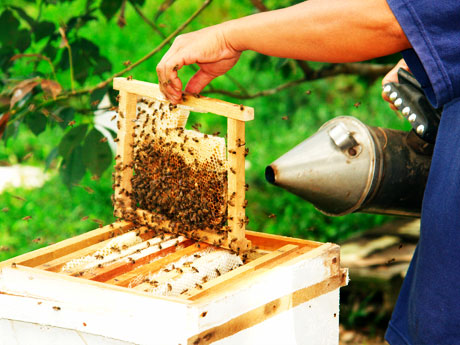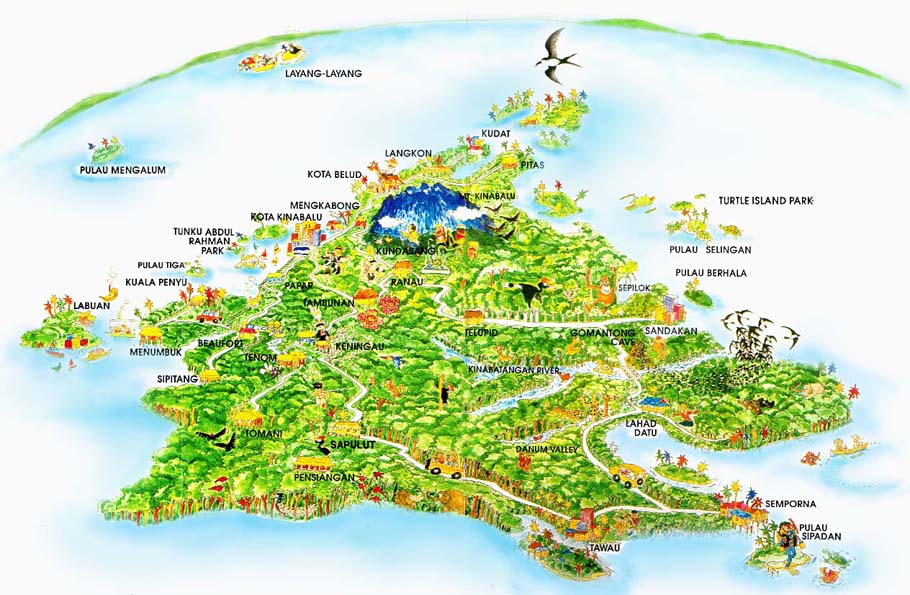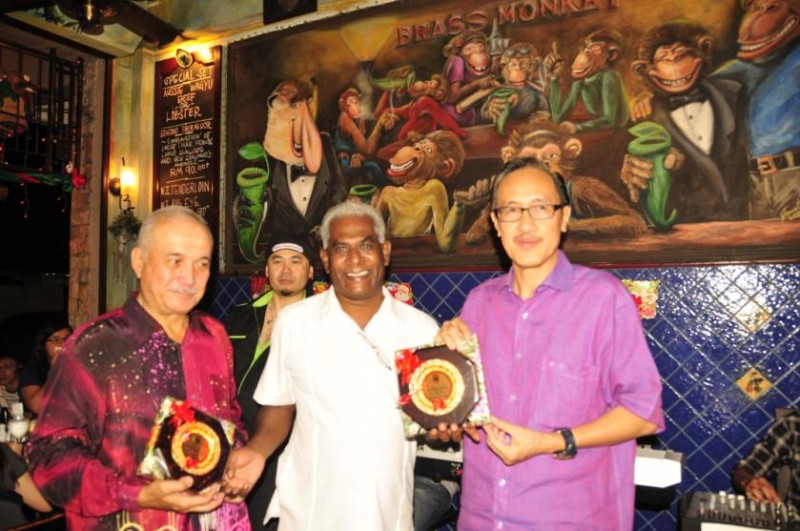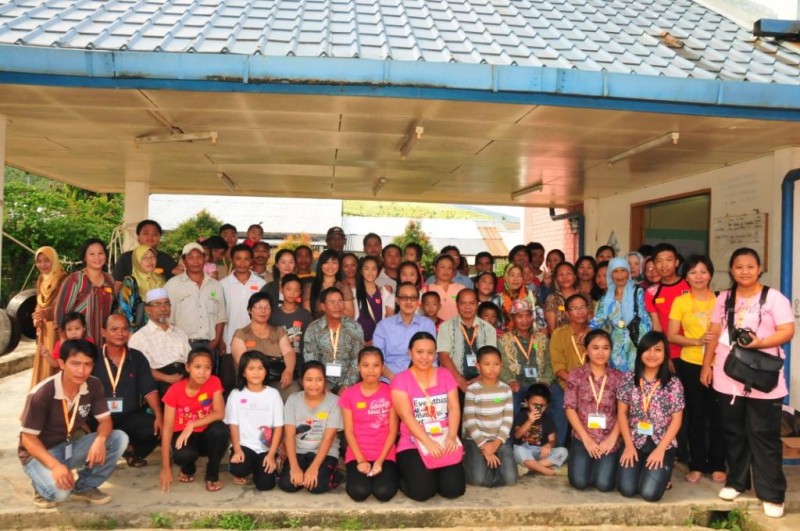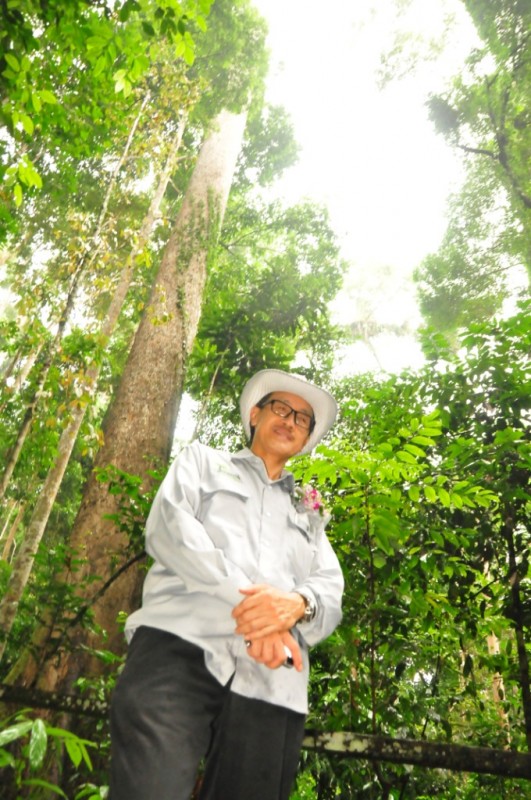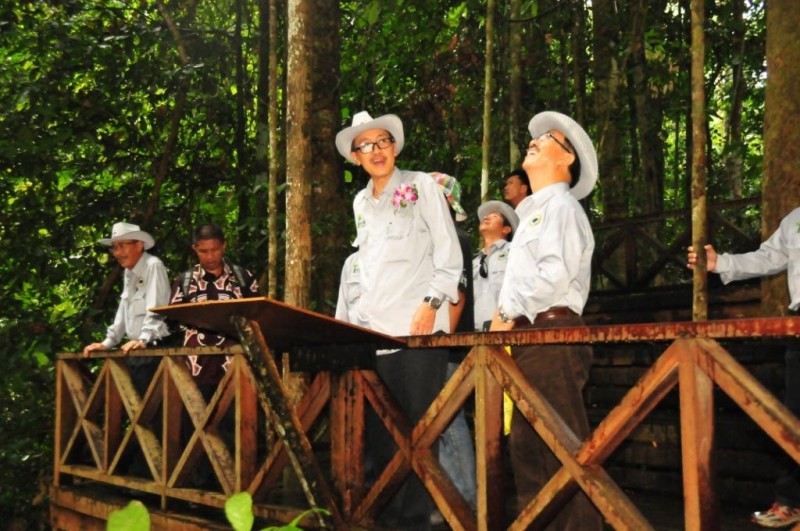Agrotourism can generate lucrative income to Sabah, says MPC director
KOTA KINABALU: The recently concluded Malaysia International Agriculture, Horticulture and Agro Tourism Exhibition (MAHA) 2012, which recorded 3.2 million visitors, showed that this industry has a huge potential to grow.
Malaysia Productivity Corporation (MPC) director Burhanuddin Saidin said the tourism industry had also contributed to the national productivity growth.
“With the higher number of tourist arrivals, it will also increase domestic consumption, such as accommodation, food and beverage. It recorded a 4.1 per cent increase in 2011.
“Talking about agrotourism, it has a great potential to generate lucrative income to Sabah and continuous effort is being undertaken by the Ministry of Agriculture and Food Industry to further enhance the state’s agrotourism, which would benefit the tourism sector in general,” he said at the launching of a six-day seminar on Innovative Strategies in Promoting Agrtotourism at Promenade Hotel here yesterday.
He added among the various agrotourism products that have been developed by the ministry through its departments and agencies include the Sabah Agriculture Park, the Tagal System, Weston Wetlands Park, Keningau Livestock Farm and various other agricultural activities like the mushroom industry in Mesilau, goat rearing in Papar and bee farming in Matunggong which have already been developed as part of the agro-tourism packages.
He believed the corporation has managed to change the people’s perception that agriculture is no longer a sector for the poor or uneducated, but open to all with the promise of lucrative profits.
“Therefore, today’s programme is a perfect platform for us in Malaysia to learn and understand how other countries such as Japan, Taiwan, Holland and our neighbour, Thailand, craft their strategies in developing and promoting agro tourism,” he added.
In line with changing expectations for the country to be more innovative and creative, MPC has aligned itself to meet the challenging demands as outlined in the New Economic Model (NEM) and to accelerate the nation’s transformation in areas of productivity and innovation, and support the aspirations of the nation to achieve a high income economy.
MPC’s new direction is reflected in the newly set up of five department models which focus on the drive for higher productivity growth.
The departments are Regulatory Review, Enterprise Innovation, Knowledge Management, Business Excellence and Global Competitiveness. He added that in the Tenth Malaysia Plan 2011 to 2015, MPC is entrusted to review business regulations for competitiveness.
With this new direction, MPC has realigned its activities and implemented measures to ensure that it has the necessary capabilities and resources to review existing business regulations with the view to removing unnecessary rules and reducing compliances cost.
Besides Regulatory Review, MPC undertakes productivity enhancement research activities as well as advisory and training activities to promote enterprise innovation.
With the setting up of Enterprise Innovation Department, MPC is able to better assist industries to enhance their innovation capabilities and improve efficiencies.
These two core functions are supported by Knowledge Management, Business Excellence and Global Competitiveness.
Knowledge Management creates a knowledge base to further improve productivity while Business Excellence develops best practices for companies to emulate and become more competitive.
Global Competitiveness on the other hand, provides international benchmarks and best practices for the country to chart a higher growth path. At the international level, MPC also conducts productivity improvement programs under the Malaysian Technical Cooperation Program (MTCP), Third Country Training Program (TCTP) by the Japan International Cooperation Agency (JICA) and not forgetting the Asian Productivity Organisations (APO).
With the membership of APO, we have managed to depute almost 100 participants to various countries in Asia, Europe and USA. It covers various fields, such as manufacturing, services and agriculture. The program includes seminar, training courses, conference and exhibition.
The first seminar held outside Kuala Lumpur is being organized in conjunction with an International Training Course on Development, Promotion and Marketing of Agrotourism Products. A total of 18 international participants from 14 countries attended the seminar.
Foreign speakers namely John Chanoki from Japan, Haro Boekhold of the Netherlands, Therdchai Choibamroong from Thailand and Dr Jen-Son Cheng of Taiwan were also at the launching ceremony yesterday.
Source : Borneo Post



